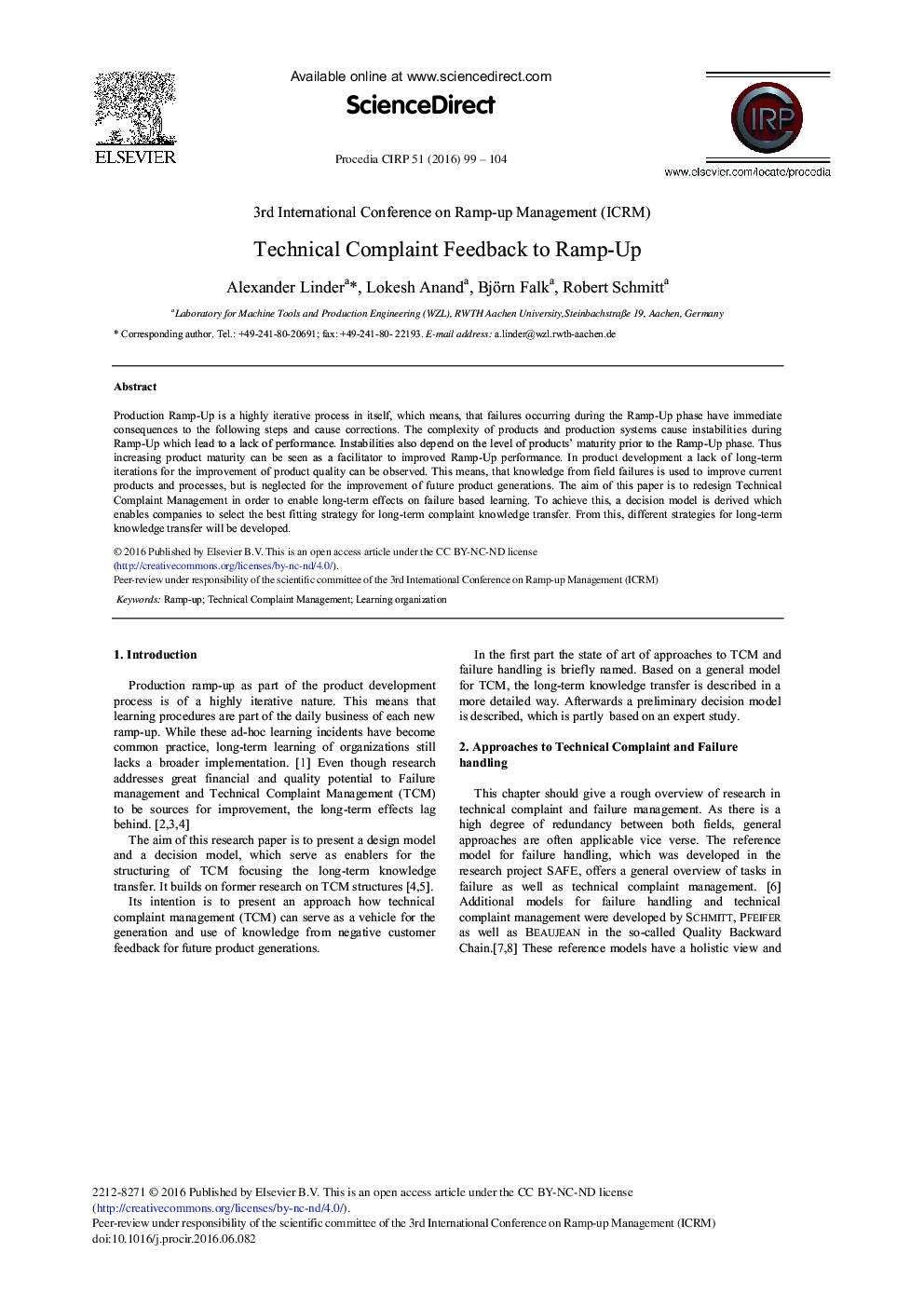| Article ID | Journal | Published Year | Pages | File Type |
|---|---|---|---|---|
| 1698106 | Procedia CIRP | 2016 | 6 Pages |
Production Ramp-Up is a highly iterative process in itself, which means, that failures occurring during the Ramp-Up phase have immediate consequences to the following steps and cause corrections. The complexity of products and production systems cause instabilities during Ramp-Up which lead to a lack of performance. Instabilities also depend on the level of products’ maturity prior to the Ramp-Up phase. Thus increasing product maturity can be seen as a facilitator to improved Ramp-Up performance. In product development a lack of long-term iterations for the improvement of product quality can be observed. This means, that knowledge from field failures is used to improve current products and processes, but is neglected for the improvement of future product generations. The aim of this paper is to redesign Technical Complaint Management in order to enable long-term effects on failure based learning. To achieve this, a decision model is derived which enables companies to select the best fitting strategy for long-term complaint knowledge transfer. From this, different strategies for long-term knowledge transfer will be developed.
